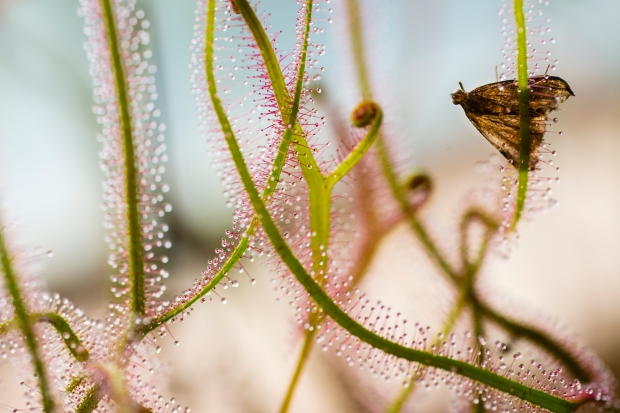Drosophyllum Lusitanicum or dewy pines are quite an exciting form of carnivorous plants. This plant is able to catch a large amount of prey through a more passive method compared to its distant cousin, the Venus flytrap. The dewy pines also live in a much different climate than most carnivorous plants. This plant is also increasing in rarity. The dewy pines are also popular as garden plants and potted plants, which has made it more of a cultivated plant now than a wild one.
Drosophyllum Lusitanicum
The dewy pines attract and catch their prey in a very interesting and unique way. The way these plants collect insects is very effective, and they are able to entrap a great deal of insects compared to other carnivorous plants. The leaves of the dewy pines produced tiny beads that resemble a red-colored dew. These emit a very sweet smell similar to honey that is highly irresistible to insects. When an insect comes into contact with the dew-like substance, it sticks to the insect and allows it to roll down into more of the secretion. This attaches to the body of the insect and doesn’t allow them to breathe, which quickly kills them. The dewy pines also secrete digestive chemicals that break down the body of their prey and will enable them to be absorbed for their nutrients by the plant.
Most carnivorous plants prefer a very wet climate. Many plants that catch their own live food grow best in swampy regions or very close to water. This may be because insects thrive in humid or wet areas, which are the primary prey of carnivorous plants. However, the dewy pines have developed to grow in a much different sort of area than any other form of carnivorous plant. The dewy pines native location is very dry for most of the year. These carnivorous plants are found mainly in the western Iberian Peninsula as well as the northwestern area of Morocco, which are both known for long dry seasons. Yet, the dewy pines are still able to survive in a climate where most other carnivorous plants would die out.

Even though the dewy pines are able to grow in an area where most plants and particularly carnivorous plants, could not grow, this plant is still a very sensitive species. In fact, due to human interference in the plant’s native area, the dewy pines are becoming rarer and rarer every year. Even just a slight amount of influence from the outside source of industrialization and other man-made interference can make this plant have difficulty growing successfully. One of the reasons dewy pines thrive in such a dry landscape is their ability to outlast other plants that can’t live through the dry seasons. When farming and fire suppression allow other plants to grow more successfully in the area, they efficiently suppress the dewy pines.
Like the Venus flytrap, potting and cultivating dewy pines has become more popular over time. Many find carnivorous plants very interesting and love adding them to their potted or garden plants collection. Unfortunately, this can add to the declining population of these plants in the wild.